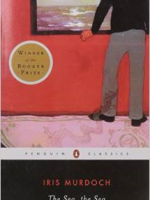(Published by Canongate)
 |
Writing in the author’s note at the beginning of this republished collection, Yann Martel sets out what he tried to achieve with these writings: “A story must [also] stimulate the mind if it does not want to fade from memory. Intellect rooted in emotion, emotion structured by intellect – in other words, a good idea that moves – that was my lofty aim.”
Which is what Martel attempts with varying degrees of success in this uneven quartet. Written ten years ago, and a long time before Life of Pi scooped the 2002 Booker Prize, it’s the clash of intellect and emotion that at times depletes the impact of these stories. You can’t help but admire his imagination and the way he takes risks. Not just with subject matter, but with form, development, characters – you never end up where you expect to in these tales.
The title story concerns the friendship of two young men, one of whom is dying of AIDS. In a bid to distract from the horror of a debilitating illness in one so young, they invent a game about a fictional family, the Roccamatios. Each takes a turn to imagine the family’s history against a single historical event in every year from 1901 up to the present (the 1980s).
Despite the backdrop of illness and Paul’s impending fatality, the book is skewed by this over-riding intellect Martel is so keen to inject into every page. When he’s not pointing out how much he knows about history, he’s wrapping historical soundbytes up in lofty prose.
In the ludicrously titled ‘The Time I Heard The Private Donald J Rankin String Concerto with One Discordant Violin, by the American Composer John Morton’, he redeems himself. A visitor to New York chances upon a recital in an old theatre that is due to be torn down. Blown away by what he hears and obsessed by the composer’s gift, he secretly follows the man afterwards – and discovers he’s a janitor who works nights in a bank. The two men talk – united by music and sense of existential questioning; Morton shows him tampons he finds in the women clerk’s desks saying: “These things are the only sign of life in this place. I see one of them and I think, ‘blood…sex…children…love’. I remember once I saw this graffiti on a wall…’I am magical: I can bleed for days and not die'”.
With a handful of words, Martel conjures up profound sadness and the wide open spaces of life and love. Just when you think this is the heartfelt core of the book, he changes tack again with ‘Manners of Dying’. A warden writes to the mother of a man who has been executed on Death Row. The emphasis again is on existence but Martel just offers us several versions of the same letter, all with the same outcome. It could be a dialectic on fate, whereby it doesn’t matter what route you take – and life’s full of possibilities – we all still die in the end.
It’s a jarring experiment that resurfaces more than once in the book. The final story ‘The Vita Aeterna Mirror Company – Mirrors to Last till Kingdom Come’ – is an excellent idea held back by this experimentalism. An old woman retrieves a machine from her basement that can make mirrors by speaking memories into it. Instead of letting this magical tale unfurl, Martel peppers it with blocks of ‘blah-blah-blahs’ which undermines the beauty of the story and makes us long for the missing dialogue.
This yen to push the boundaries of fiction writing is always a good thing – at least if you read one of these stories, you’ll know it is Yann Martel. However, making them so oblique at times is almost like self-sabotage. There’s definitely some merit to this book, in that it challenges the form of contemporary literature, but you can’t help but feel it tries too hard.



